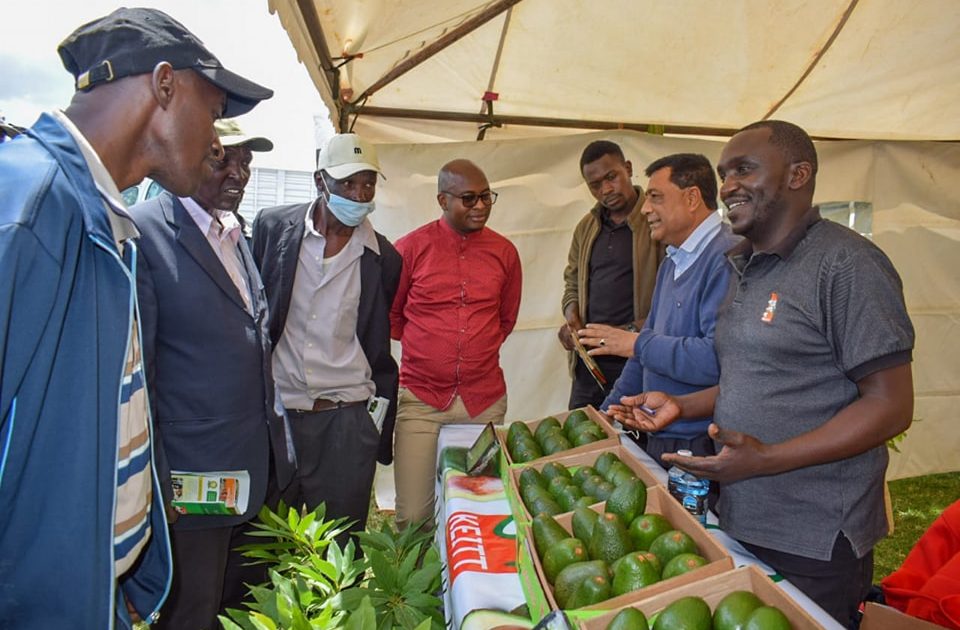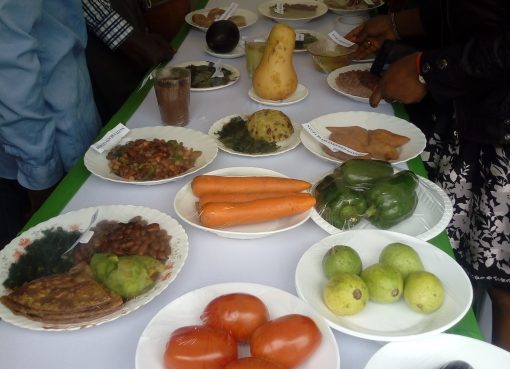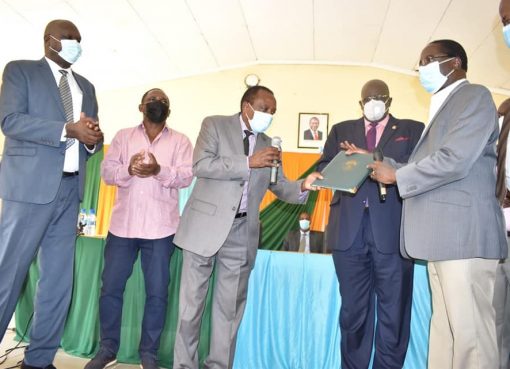Nakuru County Government has initiated training of farmers on enhancing the competitiveness of avocado value- added products with an eye on export markets.
The venture undertaken in partnership with Avocado Society of Kenya (ASOK) is mainly targeting small holder farmers, who are also being trained on export processes, quality planting material, proper farming techniques, farm mechanisation and accessing reliable market links and affordable credit facilities.
ASOK is further sensitising the farmers on the new avocado export regulations announced by the Horticulture Crops Directorate towards ensuring that Kenyan fruits are competitive in the global export market.
County Agriculture Chief Officer Kibet Maina stated that the partnership was critical in ensuring success of a sustained campaign launched three years ago by Governor Lee Kinyanjui to revitalise avocado farming as the devolved unit seeks to tap into the Chinese and other international markets.
While indicating that the County Government has so far distributed over 500,000 seedlings of Hass and Fuerte avocado varieties in Kuresoi South, Njoro, Gilgil, Molo, Nakuru East, and Nakuru West Sub-counties, Mr. Maina noted that the farmers have been trained on good harvest and post-harvest handling practices of the fruit and good manufacturing practices for smallholder processing.
Speaking at the Agriculture Training Centre (ATC) during a farmers’ field day organised by the County Government in collaboration with ASOK, the Chief Officer said avocado value-addition besides increasing the county’s export portfolio was also targeting to reduce post-harvest losses and shield farmers from exploitation by middlemen.
He added, “Value addition and processing prolongs the shelf-life of the produce and minimises post-harvest losses. It also offers more profit on the same produce and improves the nutrition and living conditions of those involved.”
The event attracted more than 20 exhibitors including the farm input suppliers, producers, agro processors, dealers, state agencies, research and learning institutions and financial institutions among others.
According to Horticulture Crops Directorate avocados rank fourth most important national fruit crop and have grown to represent 17 percent of Kenya’s total horticultural exports. Avocado is a major income earner in the sector, raking in nearly half of the total returns from fruits
About 70 percent of avocado production is by small-scale growers who grow it for subsistence, local markets and export.
On average, Mr. Maina said one Hass Avocado tree per year can fetch a minimum of Sh 7,000 and an acre can accommodate 350 trees translating to at least Sh 2 million in earnings.
The training also offers a chain approach where the trained farmers are monitored to the grassroots level, to ensure they fully apply their knowledge in their daily farming activities.
“This Farmers’ field school programme is a unique venture where we were able to train farmers so that they also train other farmers. One trained farmer will be able to reach other 50 farmers and the series continues,” stated the Chief Officer.
He urged avocado farmers to join cooperative societies to boost their incomes and prevent their exploitation by middlemen.
Mr. Maina noted that the cooperative movement has evolved over the past two decades into a key cog that turns the wheels of the agriculture sector in Kenya by extending its business beyond the primary role of marketing produce for small-holder farmers and venturing into provision of financial services.
The Chief Officer said through bulking, co-operatives have been able to reduce the cost of marketing and enabled farmers to realise higher returns through provision of a reliable and remunerative outlet for produce.
He added, “Withdrawal of many government technical services as part of industry reforms two decades ago forced co-operative societies to assume a greater role in these areas.”
Today, a number of groups have also set up agro-vet services where members access inputs on credit, recoverable from proceeds of produce deliveries. Saccos are also playing a role in empowerment through training.
The Chief Officer also noted cooperatives were the only structured channels through which the national and county governments could support smallholder farmers in value addition, accessing quality equipment and affordable credit facilities and procuring superior seedlings among other benefits.
On revised export regulations Mr. Maina noted most farmers were now aware that the Horticulture Crops Directorate had raised the minimum solid content for export avocados from 20 and 21 percent for Fuerte and Hass varieties respectively to 24 percent in order to comply with international standards.
Dry matter is the solid content of the fruit and is used to measure maturity. Some farmers have been harvesting immature produce that has high moisture content, posing a major challenge to the competitiveness and pricing of Kenyan avocado in external markets.
“We want farmers to understand what these regulations mean in terms of their earnings and we have launched an initiative to educate them on the same. We are telling them that they are not being targeted unfairly and that the regulations are for their own good,” he said.
“There has been stiff competition from the world market and our farmers should know that they have to produce quality fruits. The most serious problem is that farmers are enticed by brokers to harvest immature avocados which spoil Kenya’s reputation in the international markets and we want this to stop,” he added.
By Anne Mwale and Charloth Chepkemoi




